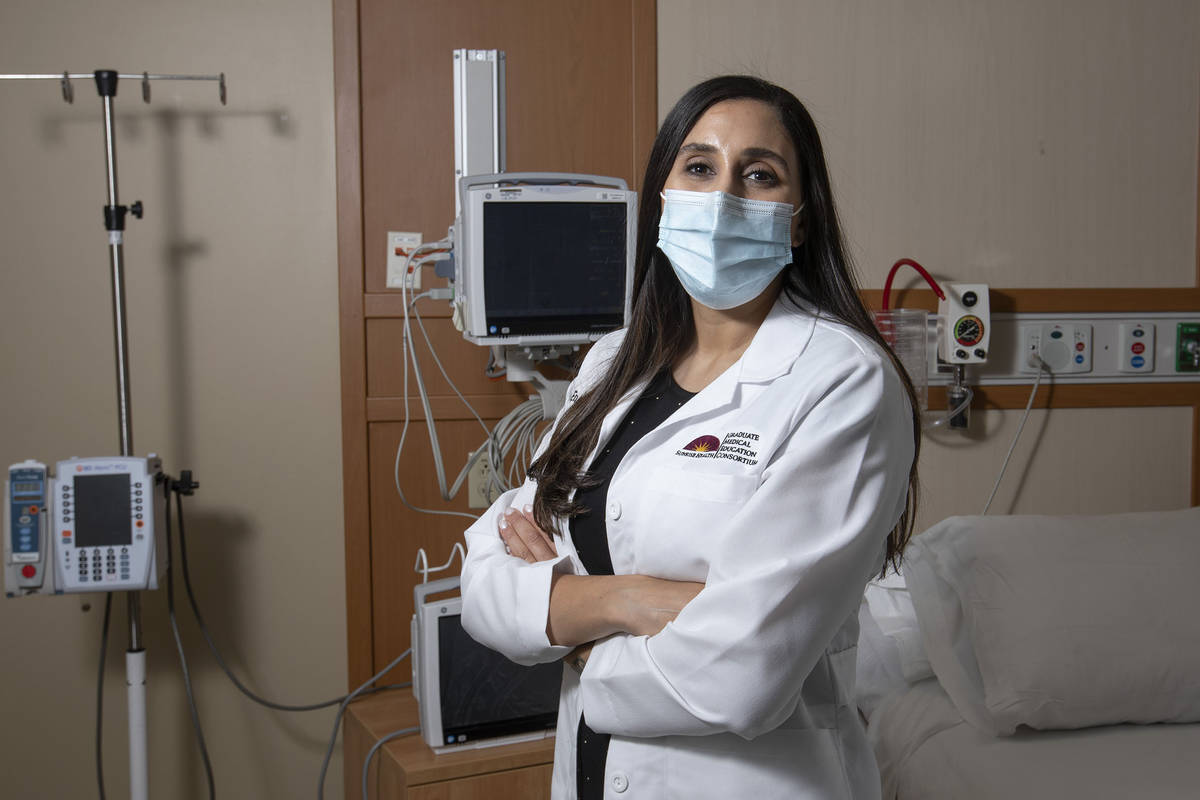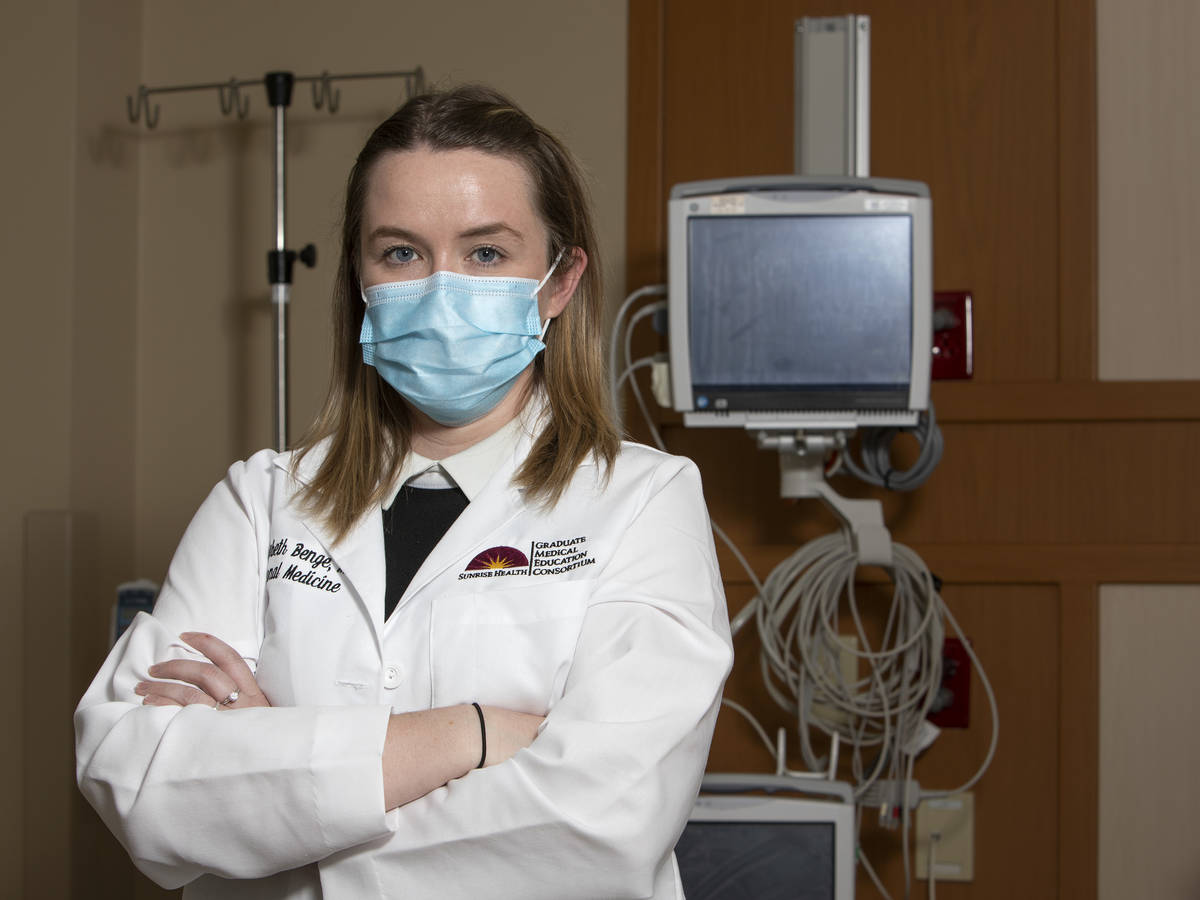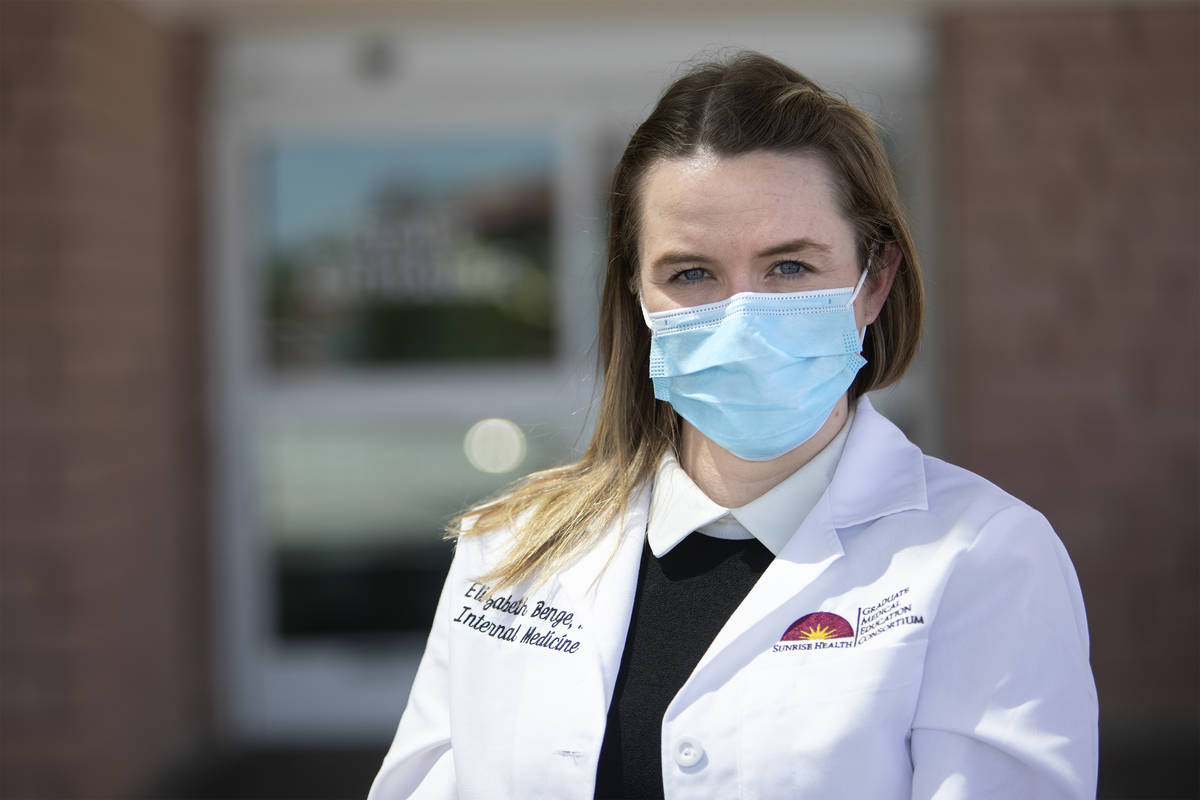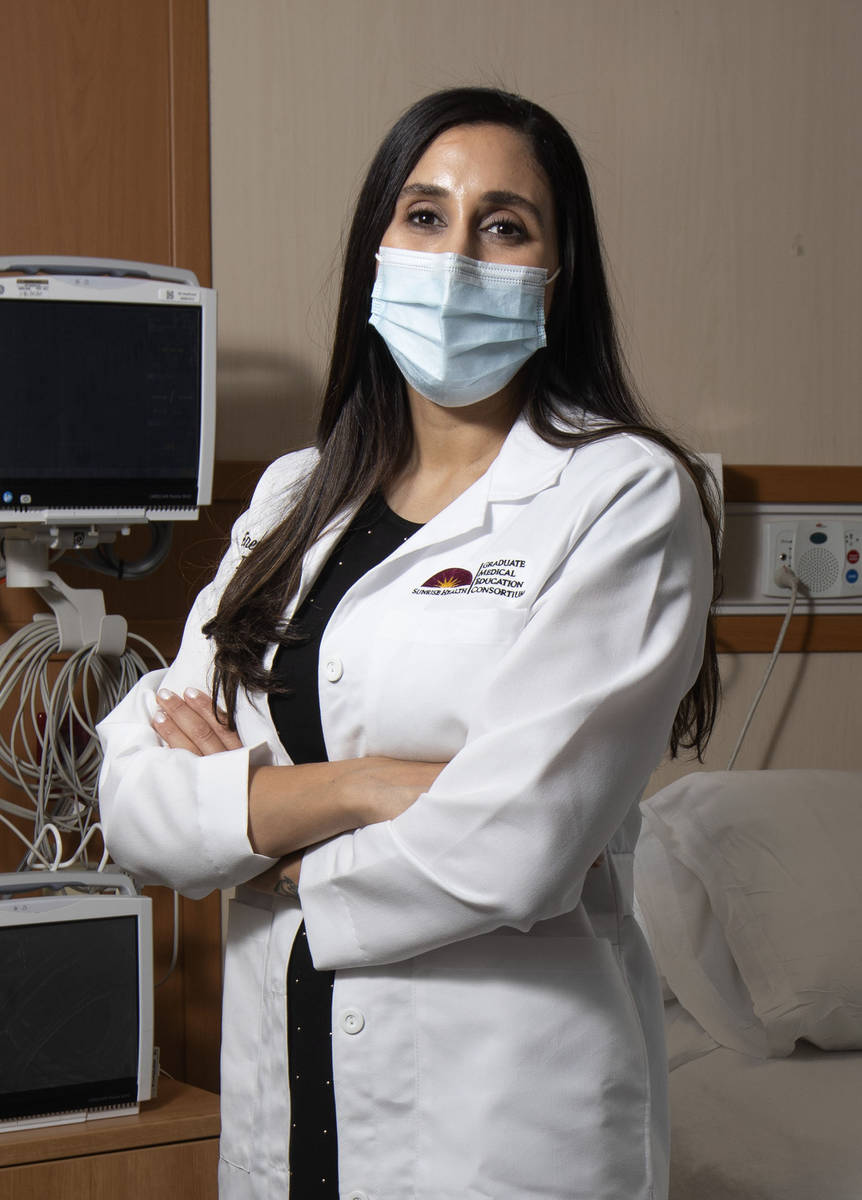Grenada doctors hope to alleviate Las Vegas primary care shortage
The Caribbean island nation of Grenada is small — with a population of fewer than 113,000 — but it’s a powerhouse when it comes to training new doctors.
Fourteen recent graduates from St. George’s University arrived in Nevada last month to start their residencies, including 11 in the Las Vegas Valley. And all but two are in family medicine or internal medicine, both areas where Nevada is in short supply of physicians.
Amid the COVID-19 pandemic, which “really stresses a hospital system, particularly from a manpower standpoint,” having residency training programs is particularly important, said Dr. G. Richard Olds, president of St. George’s University.
One big benefit is that graduates of the international medical school that overlooks True Blue Bay are far more likely to work in low-income, rural and majority-minority geographic areas, Olds said.
They’re also more likely than U.S. medical school graduates to go into primary care, an area where there’s a significant shortage of providers nationwide. The situation is particularly bad in Nevada, which ranks 48th nationwide for the number of primary care doctors per 100,000 residents, according to a January UNR report.
Dr. Elizabeth Benge — who grew up just outside Washington, D.C. — graduated this year from SGU and started her internal medicine residency last month at MountainView Hospital. She said her career goal is to help fix health care inequities. And she said she’d like to be involved with educating future medical students.
Benge said she enjoys primary care due to “the pathological diversity you see” and the ability to form long-term patient relationships. She said she also enjoys speaking with patients and learning about their medical histories.
As for her residency, Benge said she and her fiance wanted to be in the Western United States and to explore a new part of the country.
Las Vegas has a “very unique urban character,” relatively low cost of living and access to outdoor recreation, she said, adding she expects they’ll stay in the West after her residency ends.
About St. George’s University
St. George’s University, a private, English-speaking university founded in 1976, has a medical degree program as well as veterinary medicine, public health, health sciences, nursing, arts and sciences and business programs.
The school reports that it has drawn students and employees from more than 140 countries and is this year sending more than 1,100 graduates to residencies in the United States and Canada.
Once students graduate from the medical school, they’re required to complete a residency, typically three years for family or internal medicine and longer for other specialties.
SGU says it’s the number one producer of new physicians for first-year residency programs in the United States and that 96 percent of its students in 2018 passed the United States Medical Licensing Exam Step 1 on the first try.
More than 40 SGU graduates have matched into Las Vegas-area residencies over the past five years.
“It’s not at all surprising that we matched a fair number of our students into Nevada training programs,” said Olds, who was previously a founding dean of the medical school at University of California, Riverside.
He estimated about 40 percent of SGU’s graduates this year serving residencies in Nevada are originally from the Western United States.
“We know residency is a strong predictor of where they’ll practice,” he said.
For years, Las Vegas was one of the largest metropolitan areas in the United States without a medical school, Olds said.
Now, it’s home to UNLV School of Medicine, whose first class began its studies in 2017, and Touro University Nevada. Roseman University of Health Sciences plans to welcome its first class of students in 2024 for a new medical doctor program.
Different kind of Las Vegas residency
This year, 11 SGU graduates are starting a residency in the Las Vegas Valley: 10 with Sunrise Health Graduate Medical Education Consortium and one with Valley Health System. The other three in Nevada are with UNR’s School of Medicine.
Of those at Sunrise Health, seven are based at MountainView Hospital and three are at Southern Hills Hospital & Medical Center. In total, Sunrise Health GME Consortium has 272 residents — 194 of whom are based at Mountain View Hospital.
Sunrise Health GME Consortium has seen resident doctors from SGU before; it had six during 2019-20.
There isn’t a special partnership with SGU, MountainView Hospital spokeswoman Jennifer McDonnell wrote in an email to the Review-Journal. And Nevada doesn’t allow foreign medical school students to do in-state rotations, she said.
But for medical school graduates pursuing a residency location, “like students from other schools, students often apply to where they are comfortable or have geographic or personal ties,” she said.
There also are are three incoming fellows from Grenada working at the UNLV School of Medicine, according to the school. Fellows have completed medical school and a residency, and are getting additional training in a subspecialty.
Two internal medicine residents
Benge and Dr. Erene Abdelmeseeh both graduated this year from SGU and started their internal medicine residency this month at MountainView Hospital.
Benge completed her undergraduate degree at St. Mary’s College of Maryland. She became interested in pursing a career in medicine while working at a hospital when she was studying in west Africa.
“That was absolutely the best summer of my life,” Benge said, adding it changed her career trajectory and ignited her passion for medicine in underserved communities.
Abdelmeseeh, originally from Corona, California, studied journalism and graduated with a bachelor’s degree from the California Baptist University in Riverside before turning to medicine.
When she started medical school, she planned to specialize in obstetrics and gynecology because she thought that was the only way to pursue her interest in health care policy related to women’s health and high-risk youth. But during her clinical rotations, “I found myself attracted to internal medicine,” she said.
There’s sometimes a stigma around Caribbean medical schools that students are “roughing it,” Abdelmeseeh said, but noted SGU has a lot of resources for students.
Abdelmeseeh said she expects she’ll return to California to practice internal medicine once she’s done with her residency, but she’s keeping an open mind.
Contact Julie Wootton-Greener at jgreener@reviewjournal.com or 702-387-2921. Follow @julieswootton on Twitter.


























